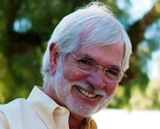The USVRA requires that federal elections be conducted on uniform, hand-countable paper ballots, and--for the presidential election--ballots must include the twelve most critical policy questions articulated by Congress, each to be answered yes or no by the voters. Moreover, paper ballots are required to provide space allowing voters to handwrite in their choice for all elective federal offices--if they choose--and that all such votes be counted.
Popular Election of the President and Vice President by the People. Fearing an "excess of democracy," the founders of the United States created the Electoral College to choose the president and vice president instead of relying on direct elections by the People. Currently, all but two states award all of their electoral votes to the candidate who wins the state's popular vote, rather than apportioning them by the number of ballots cast for each candidate.
Because Electoral College votes do not correlate with popular votes, twice in the last four presidential elections (2000 and 2016), the winner of the popular vote did not obtain a majority of votes in the Electoral College--thereby defeating the will of the People. Moreover, the Electoral College does not allow American citizens in Puerto Rico, the Virgin Islands and other U.S. territories a vote in the presidential election.
Inconsistencies in the presidential primary process occur because the voting and election processes have been left up to the states. Iowa--which chooses candidates by party caucuses--commences the process in early January of the election year and is followed by others states through June. The early states exert a disproportionate influence in the process, as the campaigns are often decided before primaries are held in the later states.
A uniform date for primaries would still allow the various states to have some flexibility in the type of primary system to employ, such as caucuses, open or closed primaries, or winner-take-all contests. It would also reduce the length and cost of the presidential elections.
The USVRA establishes a uniform primary date for all states and the date for the general election of the president and vice president. It provides that "The presidential and vice presidential candidates receiving the most popular votes by all citizens of the United States shall be elected."
Only People Have Constitutional Rights. Several decisions by the Supreme Court have allowed corporations and the wealthy elite to take control of the People's government. The Supreme Court struck down election laws prohibiting corporations and labor unions from making independent expenditures and "electioneering communications." Moreover, ruling that the laws violated First Amendment rights to free speech, the Court also struck down laws that set limits on campaign spending. In other words, the Court equated the spending of money with free speech. Those with the most money are allowed to shout the loudest--even if they are not real people.
There have been a number of initiatives brought forth to amend the Constitution as the only way to reverse the Court's actions; however, the best researched and most popular initiatives appear to be those by the Move to Amend organization.
Sections Four and Five of the USVRA are identical to the Move to Amend proposed amendments.
Under the USVRA, "The rights protected by the Constitution of the United States are the rights of natural persons only." Corporations "shall have no rights under this Constitution and are subject to regulation by the People, . . ."
The government will be required to "regulate, limit, or prohibit contributions and expenditures, to ensure that all citizens, regardless of their economic status, have access to the political process, and that no person gains, as a result of their money, substantially more access or ability to influence in any way the election of any candidate for public office or any ballot measure."
The USVRA goes on to say that these provisions shall not be "construed to abridge the freedom of the press, which includes electronic and digital publication."
Public Funding of Elections. Since 1976, taxpayers have been allowed to check a box on their tax return to divert three dollars of their income taxes to a matching fund for presidential elections. Subsequently, every presidential nominee used the public funds until George W. Bush opted out of the matching fund program in the 2000 primary, and Barack Obama opted out in the general election of 2008. Both Obama and Mitt Romney opted out in the 2012 general election--as each spent more than a billion dollars on the election. Only one primary candidate (Democrat Martin O'Mally) requested public funding in the 2016 presidential election.
A large percentage of the cost of political campaigns results from the widespread use of radio and television advertising. During the 2016 general election campaigns, more than $4.4 billion was spent on television advertising. Most countries in the European Union, including Ireland and the United Kingdom, forbid the use of paid political advertisements on radio and television; however, political parties are provided free broadcast slots.
As the price they paid for using the public airways, American broadcasters were once required to provide equal time to opposing candidates in the public interest. The rule has become ineffective due to exceptions, including news programming--as occurred in the ratings-driven media frenzy over the publicity-seeking antics of Donald Trump during the 2016 campaign. Moreover, the Fairness Doctrine once required licensees to present controversial issues of public importance and to do so in a manner that was honest, equitable, and balanced. It was repealed by the Reagan administration in 1987.
Another reason why political campaigns are so expensive is because they are continual. As soon as candidates are elected, they immediately begin to raise money for the next election, or as they say, "dialing for dollars." It is not unusual for presidential candidates to start actively soliciting campaign contributions several years before an election.
(Note: You can view every article as one long page if you sign up as an Advocate Member, or higher).





